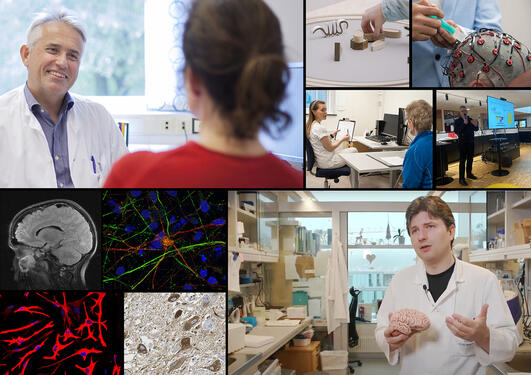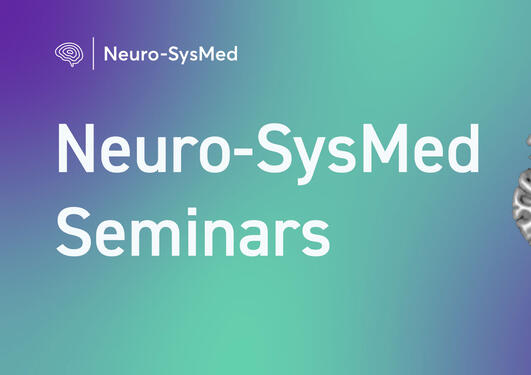Neuro-SysMed: Philosophy of Neurodegeneration
The Philosophy of Neurodegeneration project in the Neuro-SysMed research centre will contribute to a better understanding of philosophical issues in precision medicine in severe chronic neurological diseases.

Main content
Neuro-SysMed is the first research centre of excellence for clinical treatment in Norway. This is a new initiative from the Research Council of Norway which is clinical medicine’s parallel to Norwegian Centres of Excellence that usually have a more basic research approach.
The centre aims to use a systems medicine approach on accumulating data from clinical trials to identify accurate markers for early diagnosis and sub-classification of diseases, predict prognosis and treatment response.
Philosophy of Neurodegeneration
In the Philosophy of Neurodegeneration project, led by associate professor Jan Reinert Karlsen at the Centre for the Study of the Sciences and the Humanities (SVT) at UiB, a central issue which will be studied is the concept of suffering. Developing new perspectives on suffering, the group will use this concept as a frame for developing novel interdisciplinary approaches to understanding the characteristics of suffering in patients with severe chronic neurological diseases and how these can be alleviated.
The project will focus on the four diseases studied at Neuro-SysMed: Parkinson’s disease, Alzheimer’s disease, amyotrophic lateral sclerosis (ALS), and multiple sclerosis (MS). To enable more precise articulations of the philosophical problems to be studied, the aim is to establish and develop collaborations across the various groups and activities at the centre.
Issues to be studied
The philosophical and methodological issues to be studied are:
- Issues related to the nature of severe chronic neurological diseases with a special focus on the problems of heterogeneity and complexity in disease stratification and classification.
- Issues related to the limits and goals of the systems / precision medicine paradigm in severe chronic neurological diseases with a special focus on the intersection between data and algorithmic driven science, clinical research, and clinical practice.
- Issues related to conceptualization of suffering and the nature and characteristics of suffering in patients with severe chronic neurological diseases, including their co-sufferers, e.g. next of kin.
- Issues related to broader societal aspects, expectations, and concerns with regard to precision medicine in severe chronic neurological diseases, including the models for studying these broader aspects (e.g., ethical legal and social aspects (ELSA), responsible research and innovation (RRI), technology assessment (TA), and ethics of science and technology).
Activities
The group organizes interdisciplinary discussion and reflection fora at Neuro-SysMed that seeks integration across the different groups. Here, topical philosophical, societal, and ethical issues in relation to the centre’s activities will be discussed. The group will contribute to public understanding and debate about these issues. The concept of suffering will serve as a key analytic frame and heuristic entry point of this research project.
During 2020, the group established contact with a recognized international publishing house for writing a book based on this research project. The book proposal will be written in cooperation with the postdoctoral fellow, Caroline Engen.
In 2021 and 2022, Engen has been on the board of Filosofisk poliklinikk, a forum that organizes open meetings on medical-philosophical questions. She has also participated in the following meetings:
Kunnskap er makt – Om salgssuksess og forskningens (u)kritiske blikk (Knowledge is power – about sales success and research’s (un)critical gaze). 3 February 2021
Kan medisinen svekke menneskets evne til å bære lidelse? (Can medicine impair humans beings' capacity to bear suffering?) with Jan Reinert Karlsen. 2 March 2022
Engen also wrote three chapters of the book Precision Oncology and Cancer Biomarkers (2022), edited by Anne Bremer and Roger Strand:




